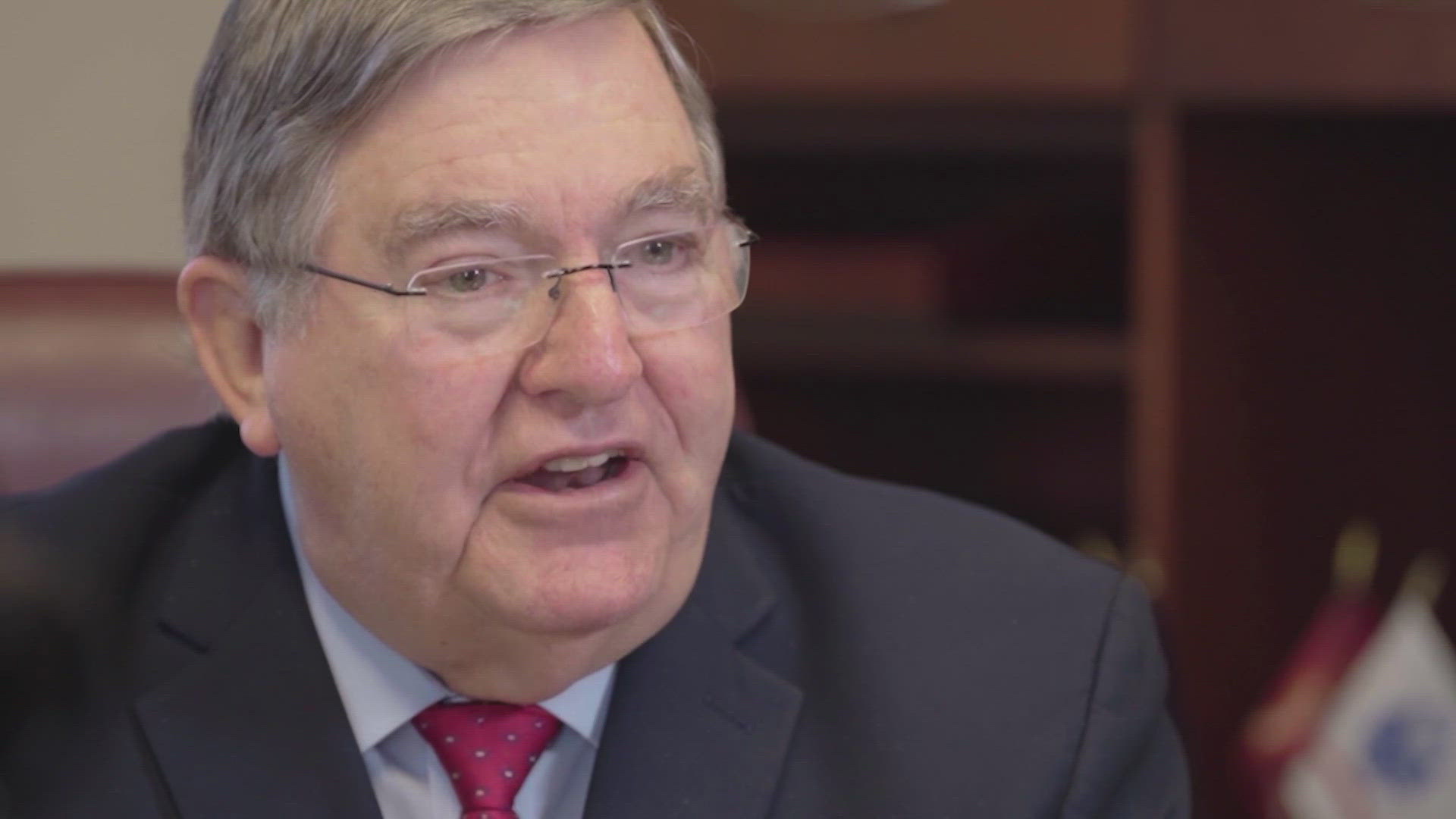LAKE DALLAS, Texas — Don’t congratulate Michael Burgess on retirement. The 73-year-old will quickly correct you and inform you he’s not retiring.
But in January, his 22-year career in Congress is coming to an end.
“For the first time since 1972, I’ll be looking for work,” he said.
Burgess’ district currently includes parts of Denton and Tarrant Counties and all of Wise County.
The Republican representative grew up in Denton and graduated from what is now The University of North Texas. He spent almost 30 years as an OB-GYN in North Texas before running for office, which has led to an “encyclopedic” knowledge of healthcare policy that he doesn’t want to go to waste.
That’s why retirement was not an option.
“I've certainly tendered my resume to the incoming administration. If they find that I could be helpful somewhere, I certainly want to talk to them,” he said. “But I'm sure there will be a number of opportunities in the private sector, people who are interested in how things happen.”
Burgess said he is proud of the healthcare reforms he passed and is still championing a few more.
The Preventive Health Savings Act, which has passed the House and is sitting in the Senate, would allow the Congressional Budget Office to study the impact of things on more than just a 10-year window.
“There’s a lot of talk now about weight loss drugs and whether those should be available to people on Medicare. If you just look at it for 10 years, it's all just going to be cost. People will say that's just too expensive.”
“But if you take a longer look and look at the reduced rates of type two diabetes, look at the rates of reduced cardiovascular disease, the savings to the system may be significant in those out years.”
He’d also like to see a repeal of part of the Affordable Care Act that he said prevents physicians from owning hospitals.
Though the ban on abortion in Texas is a state law, not federal, Burgess has a unique perspective because he has cared for thousands of women during their pregnancies. He said the Texas law needs more clarity.
“I don't want there to be any question. A doctor in an emergency room who is presented with a patient undergoing a miscarriage who feels that they need to be treated, they should be treated. It shouldn't be any question about it,” he said. “So, I do think there are perhaps some areas where a little more clarity would make a difference because practicing medicine is hard. Our public policy shouldn't make it harder.”
But Burgess is pro-life and believes that the days since the Dobbs decision, which upheld Texas’s heartbeat bill, and the repeal of Roe v. Wade have made America a better country.
Burgess said he doesn’t have a problem with any of President-elect Donald Trump’s nominees to his cabinet – including Robert F. Kennedy, Jr. as head of the Department of Health and Human Services.
“He's told me personally that he's not anti-vaccine, and I'll take him at his word on that,” Burgess said. “My worry is not so much of what he might do, but just how difficult the task he has in front of him.”
“I don't think anyone really appreciates just how big the agency is that he's going to undertake…. we talk about things that are too big to fail. This is too big to work.”
His successor, Brandon Gill, is 30 years old – 43 years younger than Burgess.
“We've had a lot of conversations, and he will make his own way. He'll create his own story in Congress,” Burgess said.
Asked if there’s any wisdom he’s gleaned from his two decades in Washington, Burgess said there’s value in doing hard work and not always looking for the spotlight.
“The world is vastly different today than it was when the country was founded, but the system works incredibly well when you think of what it could have been.”

